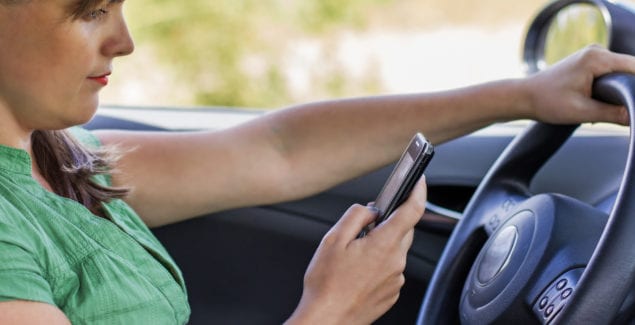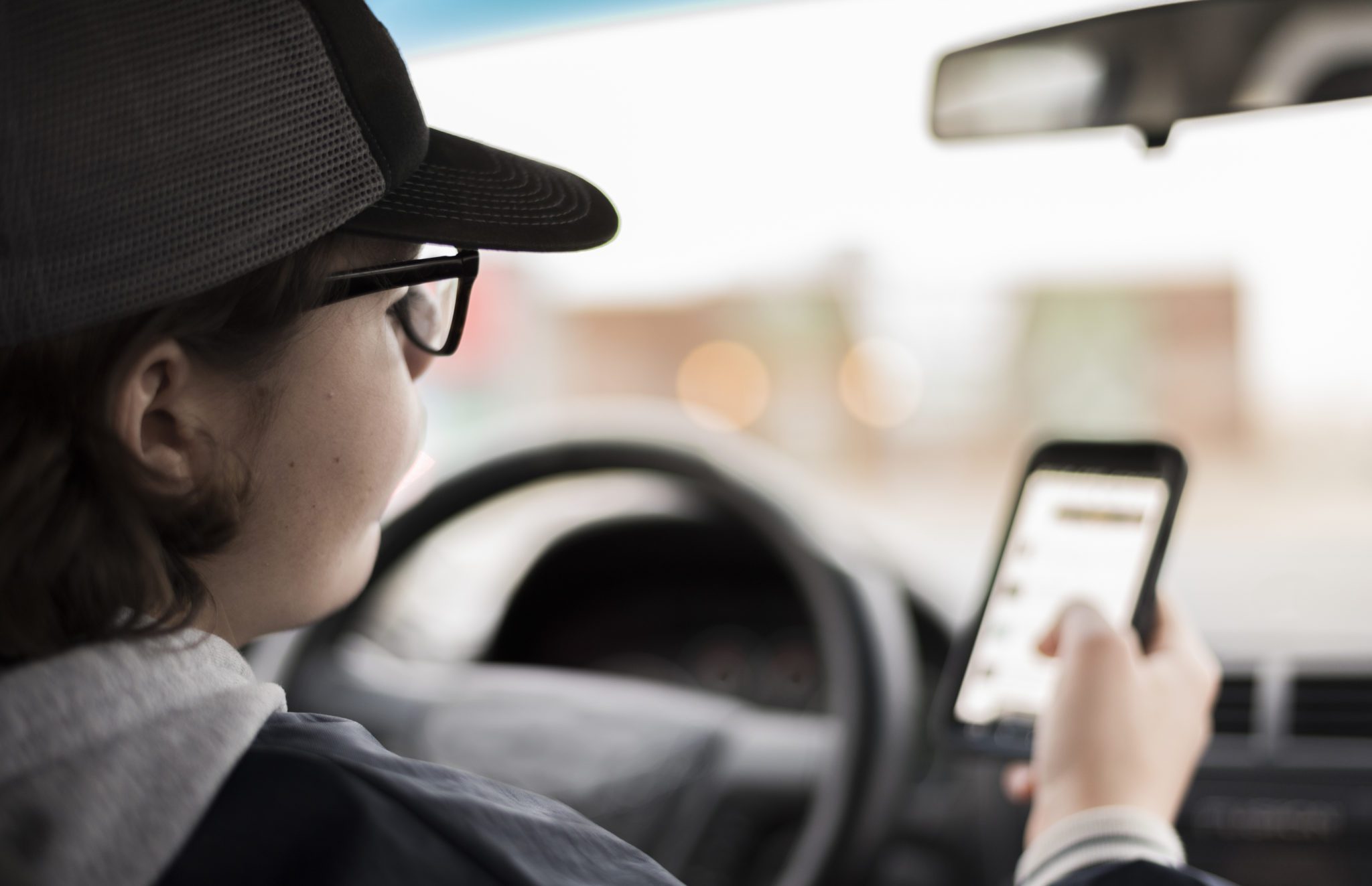Are Parents Good Role Models for Teen Drivers?

Posted in: Hot Topics, Teenagers, Young Adults
Topics: Behavioral Issues, Relationships
Parents. Is this scenario familiar?
You’re driving the kids home from school. As always, there’s plenty to do, plenty on your mind. Maybe you’re upset because your boss is making some stupid demand that you need to review.
You stop at a red light, grab your phone, and check your email, scrolling as fast as you can before the light turns green. The guy behind you lands on the horn since you delay just a tad beyond the changing of the light. It’s not that you hit anyone. No harm done. But the driver behind you was pissed. He wanted to get home.
Or take another familiar scenario. You’re on the road, driving your teen and one of their teammates to a soccer game. You told another parent to give you a call with directions to the high school field where the event is being held. The phone rings and you immediately reach for it and take the call.
And to make matters worse, your 17 year-old in the front seat grumbles, “Mom, would you put the phone down and pay attention? You tell me not to do this!”
What can you say?
I know most of you reading this will feel uncomfortable. My job is not to shame you. I just want to point out the obvious.
We’re all hostages of the digital age.
We’re all guilty of the irresistible impulse to reach for the phone – to check directions, to look at the newest text after that irritating tune played by chimes (if you call it a tune), or to see who is calling – and sometimes pick up the phone and talk.
As Senior Advisor on Adolescent Psychiatry for SADD (Students Against Destructive Decisions), I have joined the team with Liberty Mutual Insurance in developing their ongoing studies on teen driving. The latest study focused on distracted driving with a major focus on app usage.
The Teen Driving Study conducted in April 2016 was intended to help parents understand dangerous driving behaviors and help them do something about it. It surveyed 2,500 teens and 1,000 parents of teen drivers. My last blog, The Role of Apps In Distracted Teen Driving, revealed some scary facts about what teens are doing these days in their cars with smart phones.
Now I want to share the results of what we discovered about parental behavior. In some ways, it’s even scarier.
But I’m not writing this to shake anyone up – it’s really to help parents worry less. And when we look at the results, we might be able to generate some take home messages that can help us all worry less and drive safer.
Here are the disturbing results:
First, let’s look at use of smart phones.
- 50% of parents have knowingly texted their teen while the teen is driving. About a third of these parents expect a response before the teen reaches their destination. Of all the folks in a teen’s life (friends, siblings, other adults), they tell us in their own survey that when driving they are most likely to respond quickest when a call or text comes from a parent.
- 55% of parents say they use apps while driving. Nearly a third of teens have asked them to stop. And 95% of teens in the survey acknowledge that app usage is a danger behind the wheel (yet 68% of teens admit to using apps while driving!).
- 62% of parents say they use their phone to check incoming calls and/or talk while driving. Either by holding the phone, using headphones, or hands-free speakers. 75% of teens say they have seen their parents do this, and 50% have asked them to stop.
To make matters worse, let’s look at other dangerous behaviors.
- 45% of parents admit they speed while driving – and 43% of teens have asked them to slow down.
- 34% of parents say they drive while drowsy or tired – and 35% of teens have asked them to stop.
- 25% of parents report they drive aggressively – and 47% of teens have asked them to stop.
This is not a pretty picture.
And it’s really not good enough to say, “Do as I say, not as I do.”
Why? Because parents are the ultimate role models for our kids. No matter how old, our kids watch what we do and how we respond to others around us – to our spouses, friends and kids themselves.
It would be easy for me to just say, “Stop it!” but that will never work. We’re all fallible.
But what can we do? Here are some guidelines for helping all of us drive more responsibly.
Tips for Parents:
1) Open A Conversation. Parents and teens need to have open conversations about the risks and benefits of driving. Liberty Mutual has a Teen Driving Contract that may be a useful guide. As a clinical psychiatrist, I know that behavioral “contracts” really don’t work. We don’t live by the letter of the law. Think of the contract as a conversation opener – as a way to talk with your teens about distracted driving – about the use of apps, phone calls, texting while driving, speeding, use of substances when driving, and about monitoring yourself when you are driving drowsy, or in a volatile emotional state.
These conversations are best started when your kids are young – way before they are getting ready to drive. Encourage them to be aware of dangerous driving and what may or may not be distracting. The earlier you engage them in these conversations (in fact the earlier you engage them in any type of conversation) the easier it will be to bring up sensitive topics in the future.
Please remember to make these two-way discussions. The last thing our kids want is a lecture.
2) Be Transparent and Real with Teens. We all make mistakes. In fact, just think about situations in which you’ve learned the most – usually in the face of a failure! This goes for problems in relationships and at work. As one famous psychiatrist said about parenting, “We succeed by our failures.”
There is nothing a teen appreciates more than you admitting your mistake when you screw up. So, when you grab your phone, when you speed or drive aggressively, admit it. Talk about what was behind your behavior. When your teen hears your explanation for your own misbehavior, she or he will be much more likely to do the same when reflecting on their own behavior. Transparent conversations help us all become more mindful of our intentions and actions.
For example, if you know that you’re texting or calling your teen when they are behind the wheel, you are putting them at risk. If you have done this, be more thoughtful about your actions, and let them know it was not the right thing to do. And if it was an emergency, you can talk about how to respond – like pulling over and stopping the car. This particular conversation may not only help your teen appreciate the safest way to respond, but it will also help you curb your impulse to contact them if not urgently necessary.
3) Set Clear Consequences. While teens will often not admit it, they all want and need clear guidelines for behavior. Our role as parents is to set limits, define what is OK and what is not, and what the price is for violating agreements. They also want their consequences to be firm and fair.
4) Set a Good Example. As the study shows, parents are not following the same rules required of our teens when it comes to app use, speeding or talking on our phones when driving. We certainly can do better.
Rules are rules. We all need to accept them together and take responsibility for our actions.
It’s important for us to fess up. And given the survey data, we, as parents have much to admit and correct.
As the data shows, our kids are watching. And many are calling us out on our hypocrisy.
For their safety, we should take a look at ourselves and not be an added distraction to our teen drivers.
A version of this post originally appeared and was written by the author (Beresin) on WBUR’s CommonHealth.


 Share
Share Tweet
Tweet



